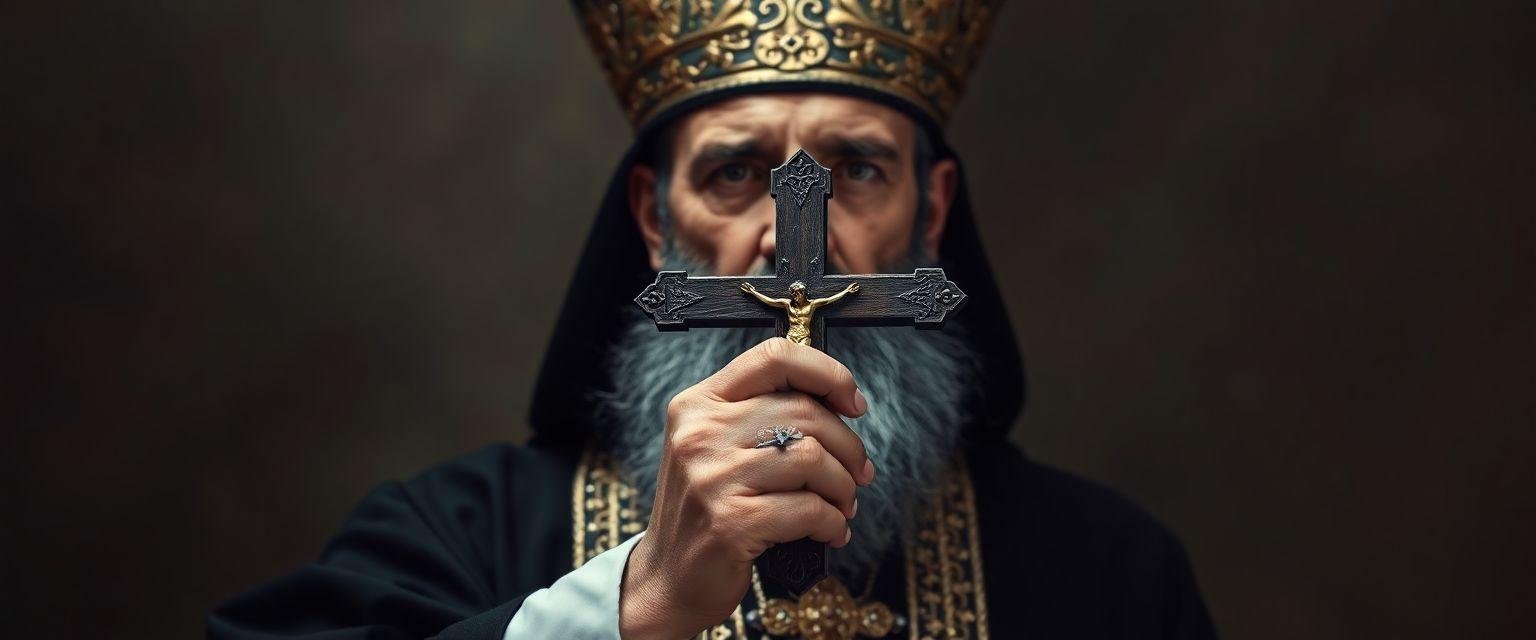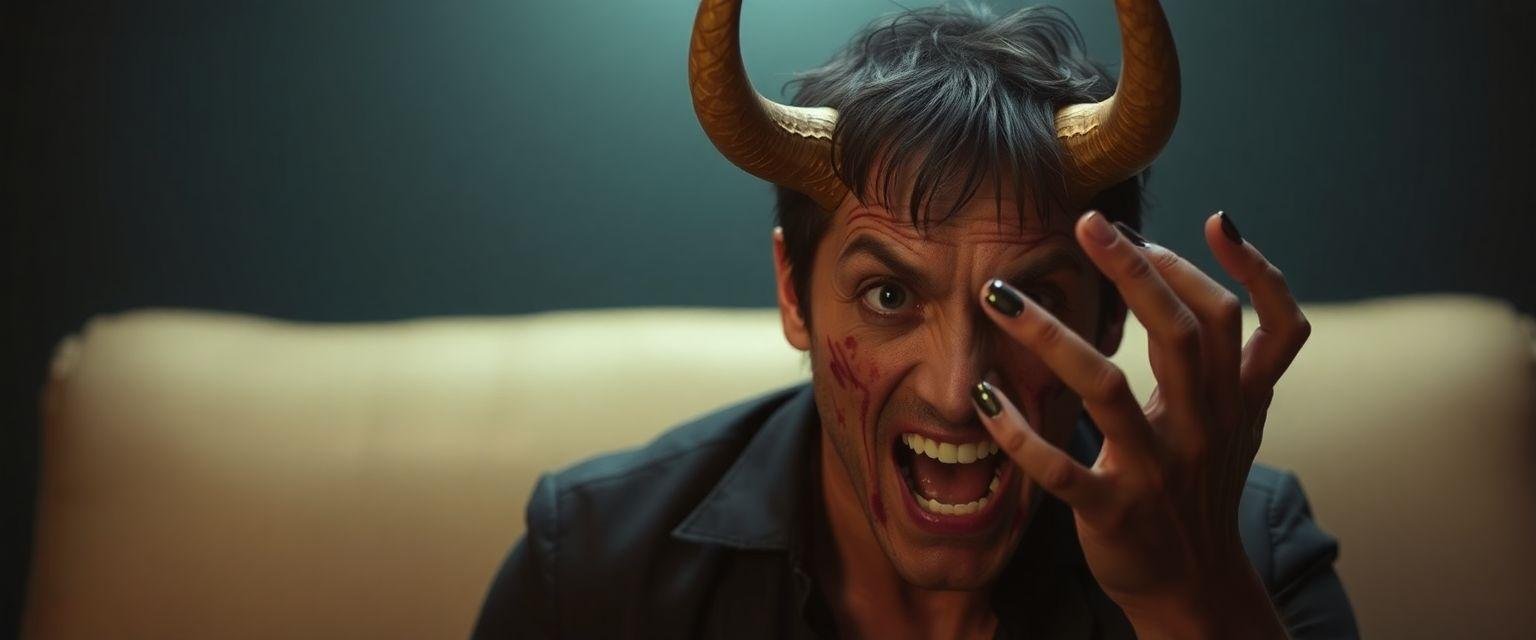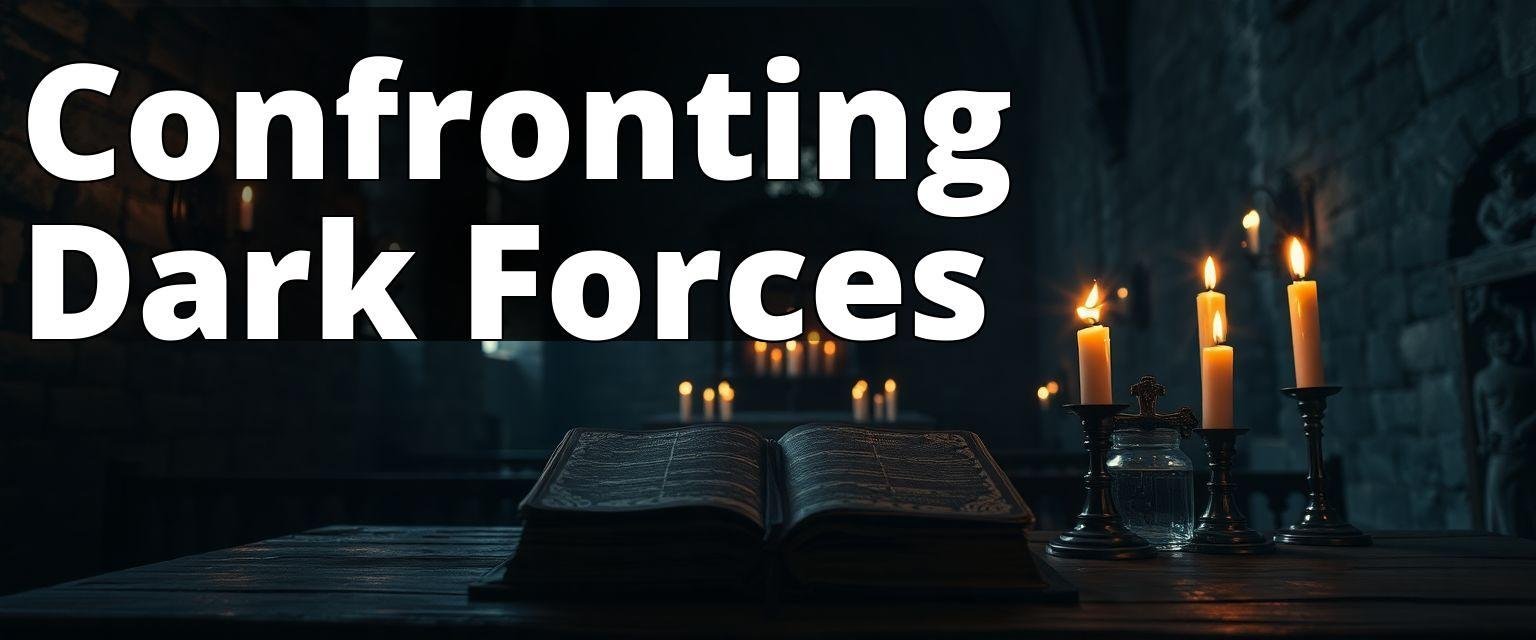Demonology and Exorcism Practices
Have you ever wondered if demons are real or just the stuff of scary movies? Demonology and exorcism practices have long been part of human culture, fascinating and frightening us with tales of the supernatural. The Catholic Church believes these practices are not only real but necessary. In this article, we’ll explore what demonology is, what an exorcism involves, and why the Church considers it a vital ritual. So, are you ready to dive into a world where the spiritual and the physical collide?
Understanding Demonology and Exorcism
Explore the essential concepts and practices surrounding demonology and exorcism.
– Demonology is the study of demons and their influence on human affairs, providing insights into their characteristics and behaviors.
– An exorcism is a religious practice aimed at driving out demons from a possessed person, while the Rite of Exorcism consists of specific prayers and rituals to invoke divine authority.
– Key signs of demonic possession include unnatural strength, speaking in unknown languages, and aversion to sacred objects, distinguishing it from other spiritual or psychological issues.
What is Demonology?
Demonology might sound like something straight out of a fantasy novel, but its a real field of study. Simply put, demonology is the study of demons or evil spirits. Its a part of many religions and cultures around the world, with the Catholic Church being one of its most notable proponents.
Historically, demonology has been used to explain the unexplainable. Ancient civilizations often attributed natural disasters and personal misfortunes to the actions of demons. But what exactly are demons? In Catholic tradition, demons are believed to be fallen angels who were cast out of heaven for rebelling against God. They are spiritual beings that exist to tempt humans away from Gods path.

Insider Tip: According to Dr. Richard Gallagher, a psychiatrist and professor at New York Medical College, not all unusual behavior can be attributed to demonic influence. In his experience, true possessions are rare, and most cases have a medical or psychological explanation.
If you’re interested in the history and evolution of demonology, check out this comprehensive article.
What is an Exorcism?
An exorcism might seem like a scene from a horror movie, but it’s a serious religious rite. So, what happens during an exorcism? According to the Catholic Church, exorcism is the act of driving out or warding off demons or evil spirits from persons, places, or things that are believed to be possessed or infested. Its a solemn ceremony conducted by a priest with the bishops permission.
The Church insists that exorcism is not a magical act but a prayerful plea to God to help someone in need. It’s accompanied by specific prayers, blessings, and invocations. The goal is to free individuals from demonic influence and bring them peace and healing.

Insider Tip: Father Gabriele Amorth, a well-known exorcist, has shared that exorcisms can take a long time and may not always be successful on the first attempt. Patience and perseverance are key.
Do you think exorcisms are purely spiritual, or could there be psychological explanations for these phenomena?
Who is an Exorcist?
Not just anyone can perform an exorcism. An exorcist is usually a priest who has received special training and has been given the authority by the Church to conduct exorcisms. This authority is not granted lightly. The priest must be well-versed in theology, psychology, and the Churchs teachings on demons and possession.
Exorcists are often depicted as warriors battling evil, but their real work is more about compassion and understanding. They must discern whether a person is truly possessed or if there are other explanations for their behavior. This requires a deep understanding of human nature and spiritual afflictions.

For a more in-depth look at what it takes to become an exorcist, you might find this article insightful.
What are the Signs of Demonic Possession?
How do you know if someone is possessed by a demon? While Hollywood often portrays possession with dramatic special effects, the real signs can be more subtle. According to the Catholic Church, signs of possession can include:
- Unusual physical strength
- Knowledge of hidden things
- Speaking in unknown languages
- Aversion to sacred objects
However, these signs are not definitive proof of possession. The Church approaches each case with caution and skepticism. They consider medical and psychological evaluations to rule out other explanations before proceeding with an exorcism.

Insider Tip: Dr. Gallagher suggests that friends and family should look for consistent patterns of behavior that cannot be explained by mental illness before assuming possession.
Do you think these signs are convincing evidence of possession, or could they have other explanations?
What is the Rite of Exorcism?
The Rite of Exorcism is a specific set of prayers and rituals performed during an exorcism. Its part of the Churchs treasure of sacramentals, which are sacred signs that bear a resemblance to the sacraments. These prayers are meant to call upon Gods power to banish demons.
The rite includes the Litany of the Saints, the Our Father, and various exorcism prayers. The priest may also use holy water, crucifixes, and other sacramentals during the ceremony. The process is both a spiritual and physical confrontation with the demonic presence.

For more detailed information on the rite, the Vaticans official document provides comprehensive insight.
What is the Difference Between an Exorcism and a Healing Service?
Exorcisms and healing services may seem similar, but they serve different purposes. An exorcism focuses specifically on casting out demons, while a healing service is about seeking Gods help for physical, emotional, or spiritual healing. Healing services do not necessarily involve spiritual warfare.
In a healing service, the emphasis is on prayer and the laying on of hands to ask for Gods healing power. While both involve prayer and faith, exorcisms are more confrontational in nature, dealing directly with evil spirits.

Insider Tip: Father Amorth emphasizes that while exorcisms are necessary in certain cases, regular prayer and participation in the sacraments are essential for spiritual health and protection.
What is the Churchs Teaching on the Existence of Evil Spirits?
The Catholic Church firmly believes in the existence of evil spirits. This belief is rooted in Scripture and tradition. The Church teaches that these spirits are fallen angels who chose to rebel against God and now seek to lead humanity astray.
While the Church acknowledges the existence of evil spirits, it also emphasizes that Gods power is greater. The existence of demons doesnt mean believers should live in fear. Instead, the Church encourages faith, prayer, and the sacraments as means of protection and strength.

Insider Tip: According to the Catechism of the Catholic Church, Christ has already triumphed over evil through His death and resurrection, offering hope and salvation to all.
Do you believe in the existence of evil spirits? How does this belief shape your understanding of the world?
In conclusion, demonology and exorcism practices are complex and deeply rooted in religious tradition. While some may view them with skepticism, the Catholic Church maintains that they are vital in addressing spiritual afflictions. Whether you see these practices as a necessary defense against evil or a fascinating aspect of religious history, the conversation around them continues to captivate and challenge our understanding of the unseen world.
For more intriguing articles and insights, visit our main page.
Q & A
What is demonology in the context of spiritual practices?
Demonology is the study of demons and their influence on humans.
How do exorcism practices vary across different cultures?
Exorcism practices vary significantly depending on cultural beliefs and traditions.
Who typically performs an exorcism when needed?
Exorcisms are usually performed by trained clergy or spiritual leaders.
What should I expect during a typical exorcism session?
A typical exorcism session may involve prayers, rituals, and spiritual tools.
How can I be sure that I need an exorcism for a problem?
Consulting a knowledgeable spiritual advisor can help assess your situation.
Are exorcisms safe, or do they pose risks to those involved?
Exorcisms can be safe if conducted by experienced practitioners with caution.







